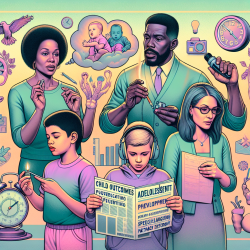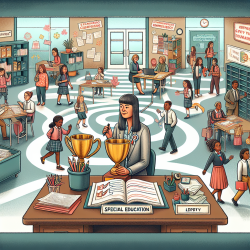Introduction
The recent study titled “Black people don’t love nature”: white environmentalist imaginations of cause, calling, and capacity by Matthew W. Hughey provides a profound examination of how racial narratives shape environmentalism. This research underscores the importance of understanding racial dynamics within environmental groups, highlighting how these dynamics can influence perceptions and actions regarding ecological disasters. As practitioners in the field of education and therapy, it is crucial to integrate these insights into our practices to foster inclusivity and cultural competence.
Understanding the Research
The study explores how members of a London-area environmental group conceptualize race in relation to ecological disasters. It reveals a tripartite racial imaginary that categorizes non-White people as the cause of disasters, assigns them moral responsibility for remediation, and views White people as possessing the unique capacity to manage environmental issues. This racialized framework not only influences environmental actions but also perpetuates stereotypes and biases.
Implementing Research Outcomes
Practitioners can enhance their skills by implementing the outcomes of this research in several ways:
- Promote Cultural Competence: Educators and therapists should strive to understand the cultural backgrounds and experiences of all individuals. This involves acknowledging and addressing biases and stereotypes that may influence perceptions and interactions.
- Encourage Inclusive Practices: Create environments where diverse voices are heard and valued. This can be achieved by actively involving individuals from various racial and ethnic backgrounds in decision-making processes and discussions about environmental issues.
- Foster Critical Thinking: Encourage students and colleagues to critically examine narratives and assumptions about race and environmentalism. This can be done through discussions, workshops, and educational materials that challenge existing stereotypes and promote a more nuanced understanding of these issues.
- Support Further Research: Encourage ongoing research into the intersection of race and environmentalism. This can help uncover new insights and strategies for promoting inclusivity and equity in environmental practices.
Encouraging Further Research
Practitioners should also consider encouraging further research in this area. By supporting studies that explore the intersection of race, culture, and environmentalism, we can continue to expand our understanding and improve our practices. This research can inform policies and programs that promote equity and inclusivity in environmental efforts.
Conclusion
Integrating the insights from this research into educational and therapeutic practices can help create more inclusive and culturally competent environments. By promoting diversity and challenging racial narratives, practitioners can contribute to a more equitable and effective approach to environmentalism.
To read the original research paper, please follow this link: “Black people don’t love nature”: white environmentalist imaginations of cause, calling, and capacity.










